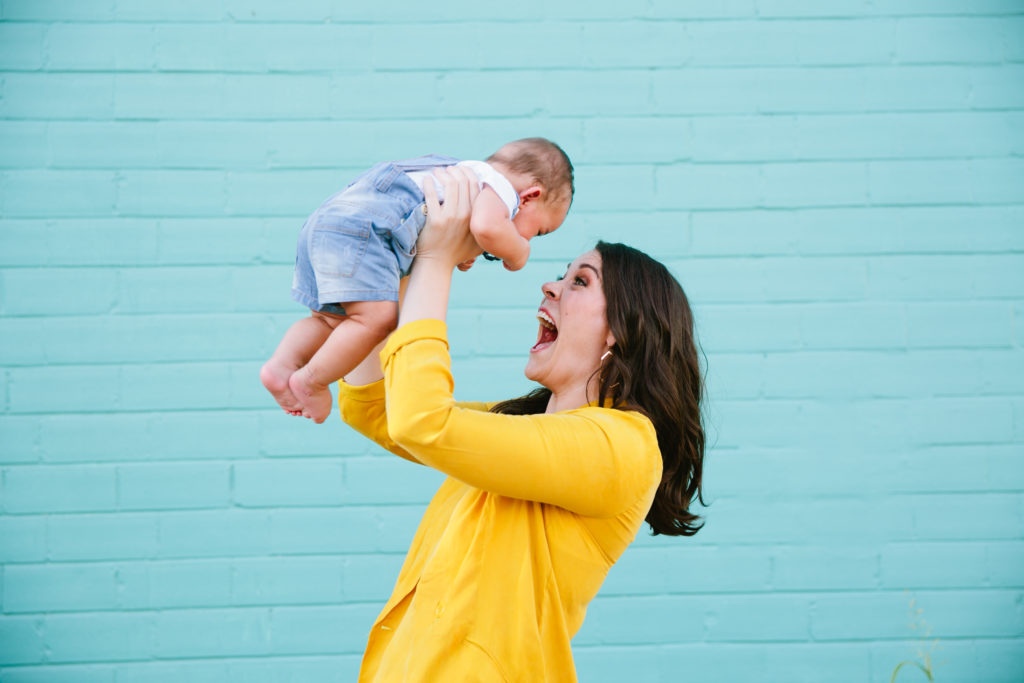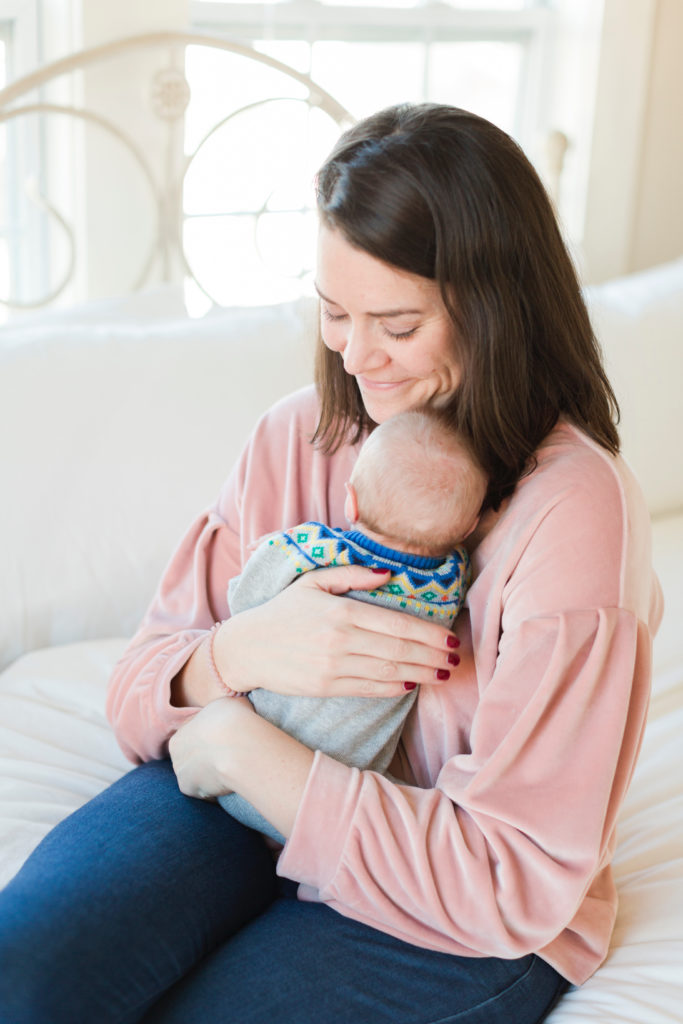A passion for foster care led Hallie Graves to become a single foster mom in 2018 and now she’s in the process of adopting her daughter.
By Landry Allred

Photo by Kelly Rucker
Hallie Graves always knew about foster care—she had volunteered at Austin Children’s Shelter in high school, mentored teenage girls in a Dallas group home, served with Court Appointed Special Advocates (CASA) and represented children in child protective services cases—but it wasn’t until becoming a foster mom herself in 2018 that she experienced the beauty and pain of the system firsthand.
Graves thought she would marry and have biological children before fostering but realized she could tackle it solo. For the past two and a half years, she’s been a single foster mom and is in the process of adopting her current foster daughter. She also serves on the board for foster-care nonprofits like The Archibald Project, Fostering Hope Austin and Foster Village.
While society often paints foster children as difficult to care for, Graves has never seen them as different than any other children. Growing up in Austin with peers in the foster-care system gave her additional perspective.
“I’ve met so many kids you wouldn’t have any idea they were in foster care until you know their story,” Graves says. “I think sometimes fear keeps people from engaging with these kids.”
During her time mentoring at the group home, she realized the need for ethical and supportive foster homes. People often enter the foster-care system thinking they’ll adopt a child and, while adoption is important, Graves says the primary purpose of fostering is to meet the needs of families in a crisis until they can be reunified with their children. If that option isn’t viable, then welcoming them into your own family is the alternative.
“Not only is it bad for the families and kids if you can’t support reunification, but it’s terrible for the foster parents because the whole time you’re hoping people fail,” Graves says. “It’s a terrible mindset for everybody.”
As of September 2018, there are 32,960 children in foster care in Texas, according to the Adoption and Foster Care Analysis and Reporting System. In 2015, 37 percent of children in foster care in Texas returned to their parents, 31 percent were adopted and 25 percent had a transfer of guardianship. 6 percent were emancipated, which means they are considered adults because of age or marriage. The longer a child is in foster care and experiencing inconsistent relationships, the higher his or her risk of having emotional and mental health struggles . According to a report by the National Conference of State Legislatures, 80 percent of children “in the child welfare system require mental health intervention and services because of developmental, behavioral or emotional issues.”

Graves has navigated a variety of situations but, if the child’s biological parents are stable, she is able to stay in contact with the them to offer updates on their child.
“It makes it a less straightforward family situation but it’s really good for the kids,” Graves says. “It’s not just black and white.”
The process of becoming a foster parent is not simple. Graves was required to attend information sessions with a child-placing agency and undergo trainings to become CPR and first-aid certified. She was fingerprinted and background checked. She also had to make sure her home met safety, space and health standards to get licensed for specific ages and numbers of children. After being officially licensed, foster parents are put on a call list and are contacted to see if their home is open to a child’s specific needs.
Her daughter has special needs, filling Graves’ schedule with doctor’s appointments. Five days a week, she attends speech, occupational and physical therapy.
“Since I have them so young, it’s mind-blowing that every baby has a full personality when they’re born,” Graves says. “Then, they start demonstrating more of their natural personality and it has nothing to do with me [or]their biological parents. They have their own little personality.”
Since Graves began fostering, she has housed three children long term and several children for brief weekends. While she’s only fostered young children, she anticipates fostering teenagers due to her past experience.
Many times, people unintentionally imply that foster parents aren’t real parents and ask if Graves will have her “own” kids.
“These are my own children. This is not a pretend situation,” she says. “I wish people understood even if it’s temporary, it’s legitimate. I’m not a babysitter; I’m the 24/7 parent.”
Inevitably, if adoption isn’t viable, there’s a point when she must say goodbye to the child. After her first child, her faith in God led her to keep fostering. When a child leaves and she doesn’t have control over their futures, she says she remembers God protects them and turns her sadness into prayer.
“If you want comfortable, easy stuff, nothing in foster care or adoption is ever the plan,” Graves says. “When I wrap my head around that I’m not trying to make my life comfortable and super easy, this becomes a really easy ‘yes’ for me, and I feel way better about that than just praying it gets easy soon.”
Instead of pursuing foster care for her own interests, she’s found joy in doing it for the sake of loving children. She’s also learned how resilient people are, both children and their biological parents. Some of the children who have trauma due to exposure to drugs and alcohol in utero are able to heal. Teenagers who have every reason to give up on their lives decide they’re still valuable. People who have everything going against them choose to keep trying.
“The story is not over for anybody,” Graves says. “You think if somebody can’t pull it together for five years, they’re not going to—and then, they do.”
She’s learned to not underestimate what God can do through the children and their parents and sees each moment with her foster children as precious. This May, National Foster Care Month, she will finally have the chance to adopt her foster daughter but her journey of fostering isn’t over.
“You just have to know it might be temporary with a specific child, and that’s okay—we will never run out of kids to foster,” Graves says. “I had to change my mindset from the joy [of]having one child forever…to the joys of maybe helping 20 kids go home.”


